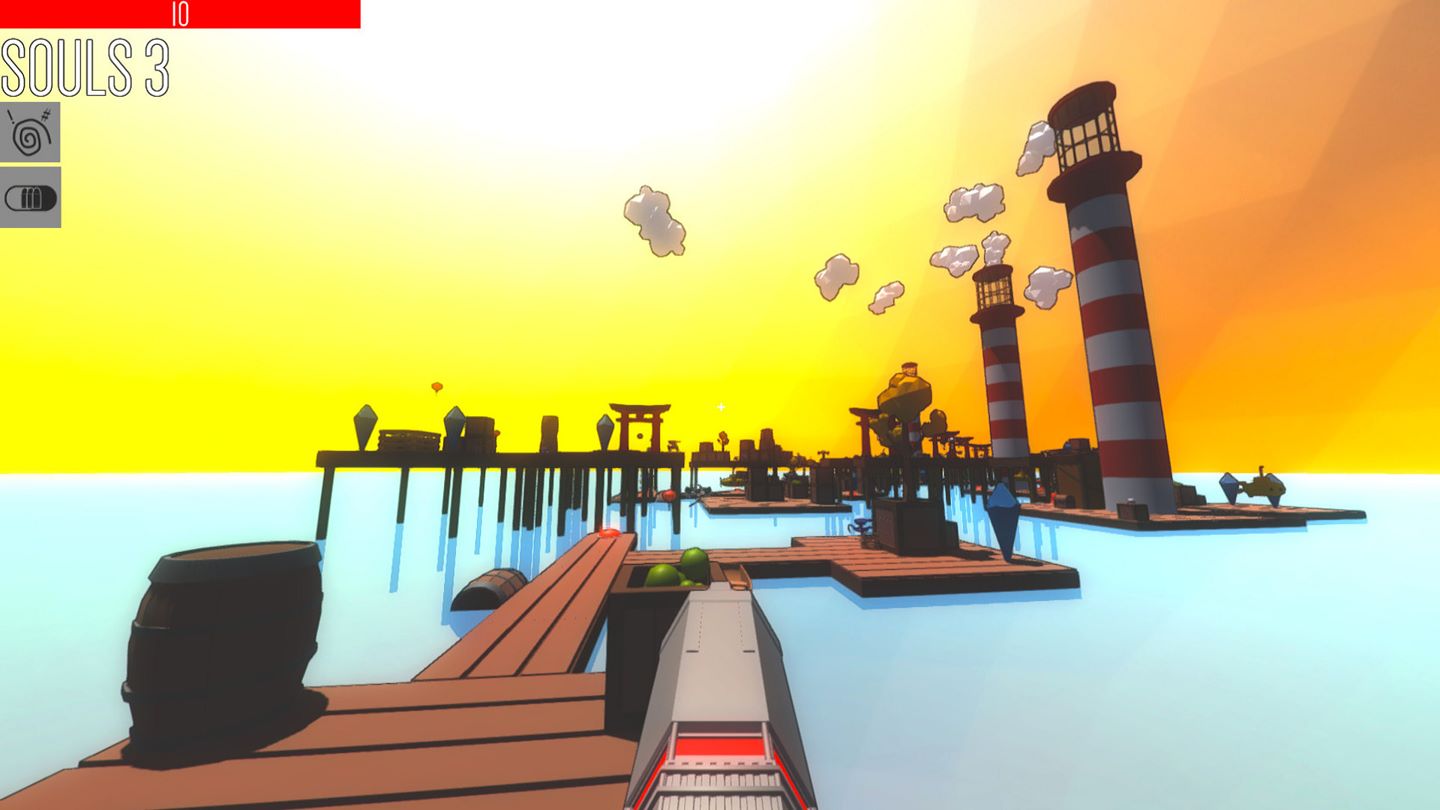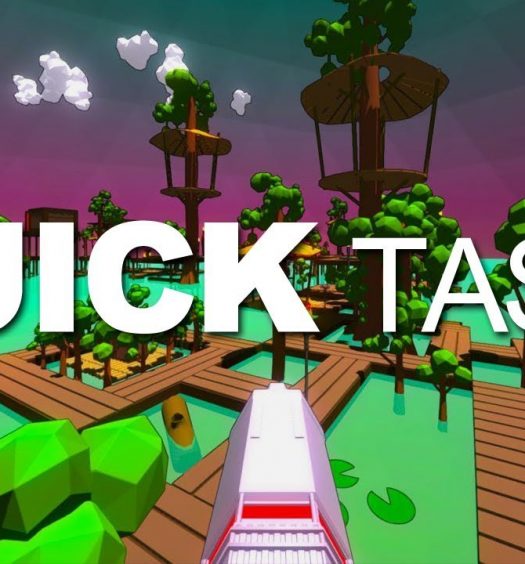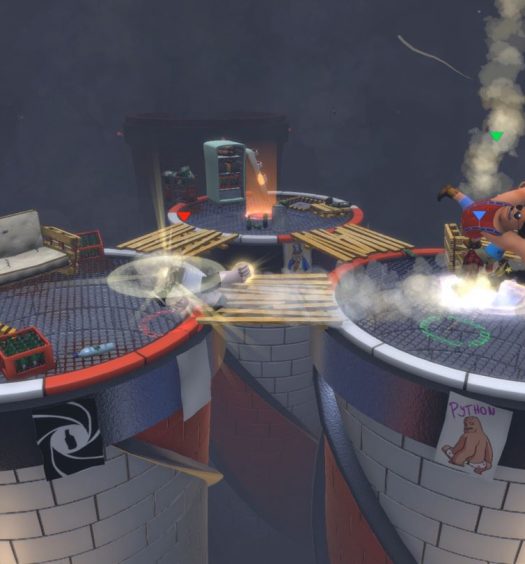If you’ve ever wanted the opportunity to shoot first and ask questions never, then that opportunity has arrived. Developed by Krafted Games, Polygod is a roguelike in the style of a first-person shooter. The premise is simple: run and jump around, shoot your enemies, avoid their fire, and repeat. Take the souls of the departed and spend them on unique blessings to further push you into a lean mean monster-killing machine.
Seriously though, if you’re looking for any sort of in-depth story, your best bet would be looking elsewhere. Polygod is all about killing everything in your way and making it to the end of the level. It is here where you’ll be taking on one of the seven deities the game has to offer. If you successfully defeat them, don’t celebrate just yet. The further along you go, the harder it gets. Either live for something or die with nothing.
What I liked:
Art Style – To put it simply, the game looks amazing. The game isn’t super graphical like a lot of games today, but the art style the game presents is beautiful in its own way. The cartoonish forms of characters and enemies are interesting. The gun model is simple yet reminiscent of the starting gun from the original Quake. Each world presents itself with a new theme, and with each theme comes new beautiful scenery to glare at.
Various enemy types – The different types of enemies are a strong point even from the very start of the game. The first level normally presents a lot of ground-type enemies to try and take you down, but very quickly air-type enemies are thrown into the mix. Later levels throw you completely off guard with enemies that are both ground and air types. Some enemies shoot in a straight line while others have projectiles flying out from all around their body. It leaves the player constantly alert to all the clear and present dangers around them in every level. Though the bosses may stay in the air most the time, their attacks can be a flurry of bullet hell that makes dodging next to impossible. It really leaves the player with a clear and present danger for much of the game.
The Gunplay – Running and shooting are the staples of Polygod. Thankfully the developers don’t have you wasting time reloading, and it would be a shame to have to do so. Really though, there’s no ammo count anywhere that would make one even remotely think they’re out of ammo. The game offers up unlimited and unending ammo supply for the gun you’ll be wielding. The gun doesn’t have any recoil so whatever you’re aiming at, even if it’s a distance away, you’re guaranteed to hit it. Moving targets can be a bit more tedious, but the one major thing to remember here is that you want to shoot where your target is going to be, not where they currently are.
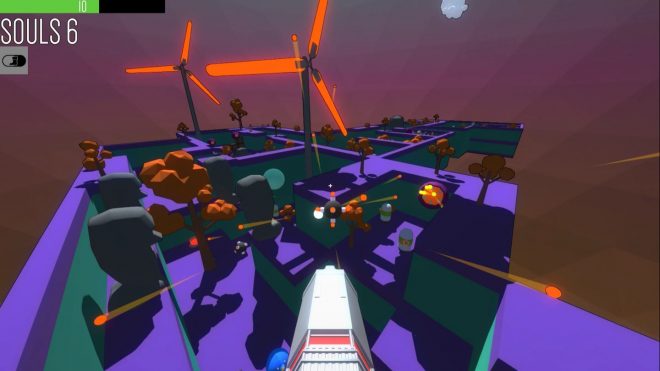
What I didn’t:
Brutal Difficulty – Well alright, the game does advertise itself for having a brutal difficulty. But the problem lies in just how brutal the game is. The game has seven levels to offer. When the biggest issue is that you cannot make it past the second or third level without dying, due to how much of an increase in difficulty there is between the levels, the question is why the difficulty increase is so immense. Other roguelike shooters raise the difficulty over time. They give the player the opportunity to experience some of the game, to learn the different areas and enemies. Polygod just forces you from area to area. There is no time limit, so playing each level at your own pace is fine. The problem is, if you are met with a cluster of enemies you’re not prepared for, it’s game over before you even have a chance.
The imbalance between blessings – It’s unfortunate to even say, but a large portion of the different blessings in this game are either completely useless or just aren’t balanced to the rest of the blessings that do work. Blessings that increase damage take precedence over all other blessings just due to the sheer amount of health each levels next boss has. A large number of different blessings should offer different variance for your character and your playstyle, but instead, it all comes back to one stat, eventually: damage.
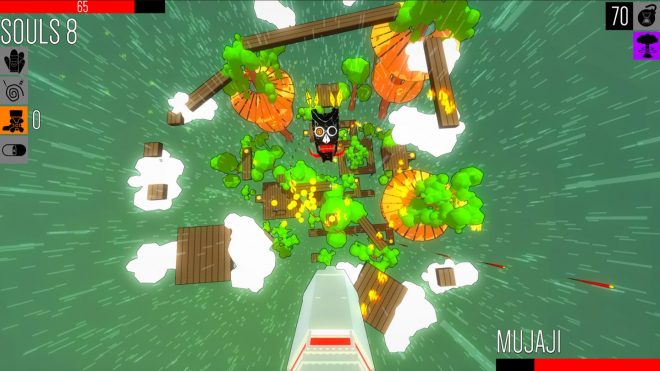
Wrap-Up:
Polygod is by no means a bad game. If you’re someone who’s into the roguelike genre you’ll find a sense of similarity here as you would other games. The issue that Polygod has that not a lot of other roguelike games have is the rapid increase in difficulty over a short time. Most games work up to that point, giving the player the chance to experience a large amount of the gameplay. That type of concept works better as it makes players more likely to play the game again to try and challenge themselves to beat their own records or push a little further. With Polygod, the consistency of having to repeat the first two-three levels over and over, never really making any further progress, easily becomes exhausting. The player really needs to ask themselves if they’re ready for that type of commitment before investing.
Rating: Reader’s Choice
Polygod was developed and published by Krafted Games. The game released on August 17, 2018, for $14.99. A copy was provided for review purposes.

